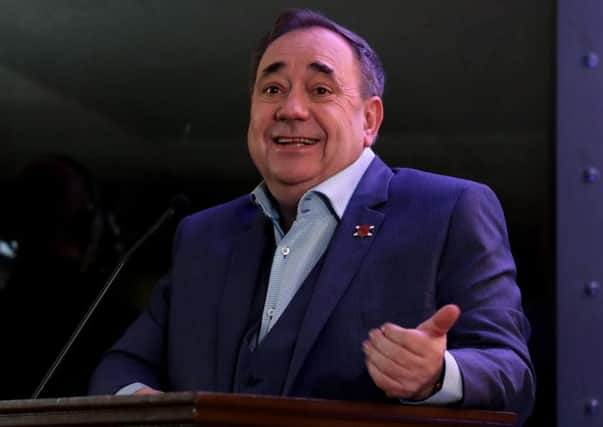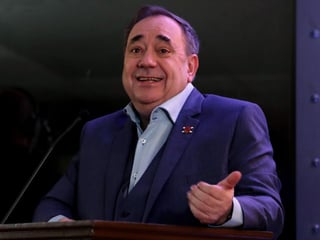Why Alex Salmond went to RT - and why he's been criticised


The news that the two-time SNP leader would be hosting his own political chat show on Kremlin-owned broadcasting network Russia Today, got tongues wagging across the political spectrum.
Mr Salmond has been far from idle since losing his seat in one of the biggest moments of June’s snap general election.
Advertisement
Hide AdAdvertisement
Hide AdHe took a chat show format to the Edinburgh Festival Fringe, and the sold-out run was testament to his continued appeal despite an electoral setback.
That appeal will be tested again when The Alex Salmond Show starts on RT, which has been criticised for a pro-Putin editorial line and some of their more controversial guests.
Why RT?
Mr Salmond, despite initial controversy over an off-colour sexual innuendo about female politicians on the opening day, clearly relished his time on the Fringe.
With no desire to retire, and an immediate return to elected politics looking distinctly unlikely, Mr Salmond needs a regular outlet to remain in the public consciousness.
Having already published a book, and enjoyed a successful Fringe run, TV would seem like the natural progression.
An opportunity like this is unlikely to arise for any politician, not least at the BBC, which Mr Salmond has denigrated since the referendum on independence in 2014.
While appearing as a ‘talking head’ on news channels, as Nigel Farage does often, could be appealing, as could a slot on an existing light political show, like This Week.
However, the chance to have his name in lights, as well as having a Salmond-linked company handling production, was clearly too good to pass up.
Controversy
Advertisement
Hide AdAdvertisement
Hide AdRussia Today, to give it its full title, doesn’t spend all day pushing relentlessly pro-Putin propaganda, but there remain clear editorial lines the channel won’t cross in terms of criticising the Kremlin.
The channel is owned and subsidised by the Russian Government, leading many critics to paint it as a mere mouthpiece for the regime.
Continuing reports about Human Rights abuses in Russia, especially regarding the LGBT community, make appearing on the channel a poisoned chalice for any politician.
In America, criticism of the channel is even more pronounced, especially given the accusations of Russian meddling in the Presidential election of last year.
RT was forced to formally register as the agent of a foreign government, sparking threats of a backlash from the Kremlin.
Criticism
Russia Today themselves rather charitably implied that the social media reaction was positive, while pro-independence newspaper The National called reaction ‘mixed’.
In truth, most bar the most fervent of online users were unhappy with the former First Minister’s decision, with even senior SNP figures querying his choice of channel.
His successor Nicola Sturgeon said: “Had I been asked, I would have advised against RT and suggested he seek a different channel to air what I’m sure will be an entertaining show.
Advertisement
Hide AdAdvertisement
Hide AdSNP MEP Alyn Smith went even further last night, asking “What the f**k was he thinking?”
His erstwhile colleagues in journalism and broadcasting also expressed their shock and anger, with fellow LBC radio presenter Iain Dale slamming Mr Salmond’s ‘duplicity’ over launching the show.
Not all were opposed, suggesting divisions within the party.
MP Douglas Chapman tweeted: “Can you not see Alex Salmond is having a ball?”
